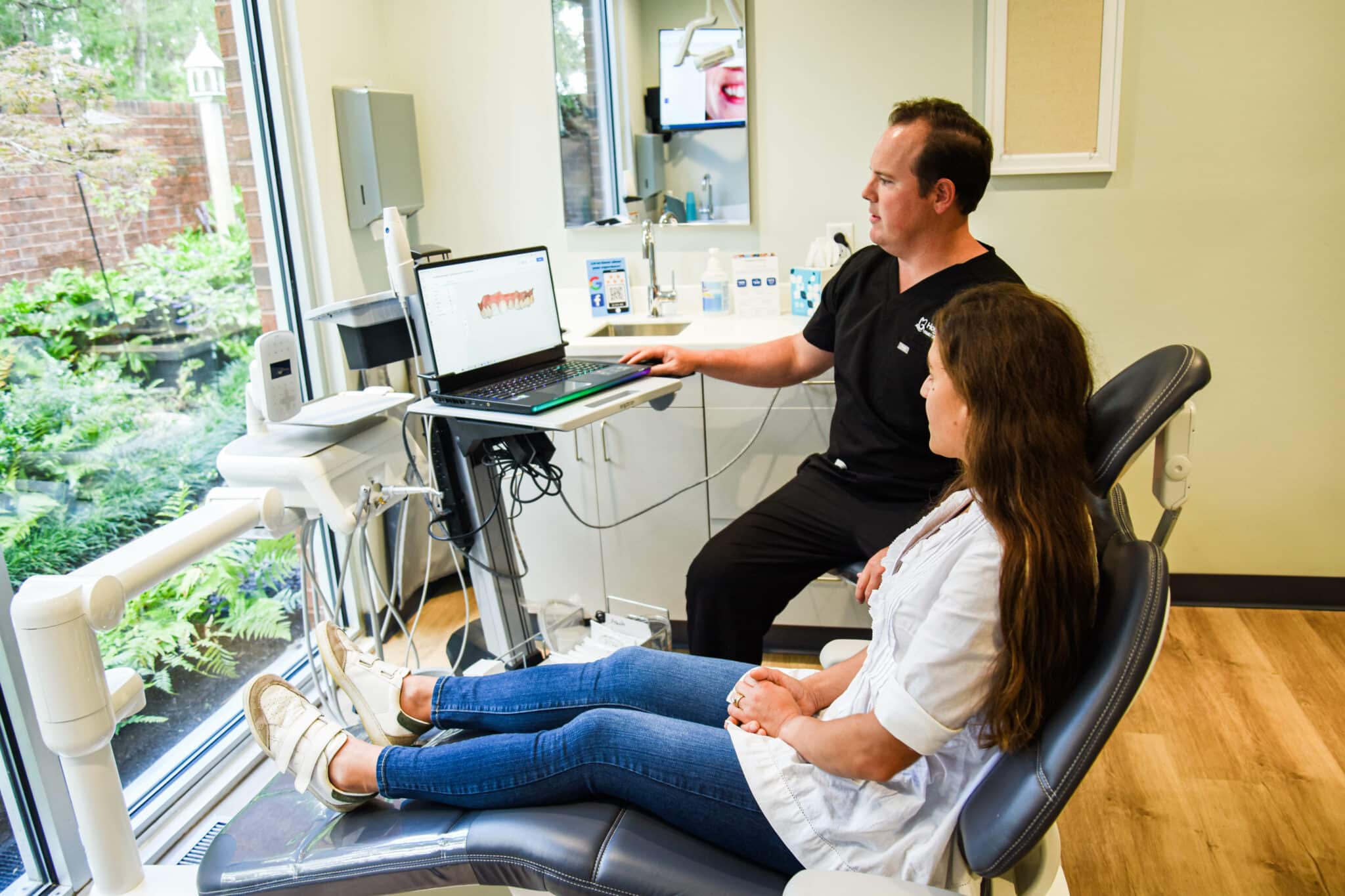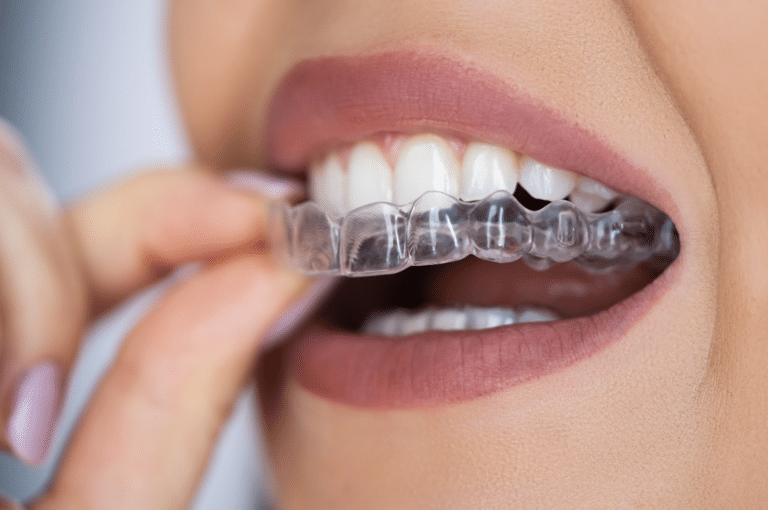What Does a Cavity Feel Like?
When it comes to oral health, cavities are a common concern for many.
Understanding what a cavity feels like can help you quickly identify potential dental issues and seek appropriate treatment.
You can take proactive steps to maintain optimal oral health and avoid additional problems the more informed you are.
This article will explain the signs and symptoms of cavities, their causes, and the available treatment options.
Understanding cavities
Cavities, also known as dental caries, are permanently damaged areas in the hard surface of your teeth. The damage is caused by the bacteria in your mouth interacting with the sugars from your food.
Bacteria produce acids that gradually erode tooth enamel, forming small holes or openings in the teeth, commonly called cavities.
Causes of cavities
Several factors contribute to the development of cavities.
- Poor oral hygiene is a primary cause, as inadequate brushing and flossing allow bacteria and plaque to accumulate on the teeth.
- Consuming sugary and starchy foods increases the risk of cavities since bacteria thrive on these substances and produce more acids.
- Lack of fluoride, dry mouth conditions, and certain medications can also contribute to cavity formation.
Signs and symptoms
Detecting cavities in their early stages is crucial for effective treatment. Here are some common signs and symptoms that indicate the presence of a cavity:
Sensitivity to temperature
One of the initial signs of a cavity is increased sensitivity to hot or cold foods and beverages.
You may experience sharp, fleeting pain when consuming something hot or cold, which subsides once the stimulus is removed.
Toothache and pain
As a cavity progresses, you may start to experience toothache or pain. The pain can range from mild to severe and may worsen when you bite down or apply pressure on the affected tooth.
Visible holes or discoloration
In some cases, you may be able to identify a cavity visually. Cavities can appear as visible holes or pits on the surface of your teeth.
They may also cause discoloration, appearing as dark spots or stains on the tooth enamel.
Sensitivity to sweet and sour foods
Cavities can make your teeth sensitive to sweet and sour foods. When you consume sugary or acidic substances, you may feel a sharp or tingling sensation in the affected tooth.
Bad breath
The presence of cavities can lead to persistent bad breath. Bacteria in the mouth release foul-smelling gases as they break down food particles and create acidic environments.
Prevention and oral hygiene
Preventing cavities involves adopting good oral hygiene practices and making healthy lifestyle choices. Here are some tips to help maintain optimal oral health:
Brushing and flossing techniques
- Brush your teeth at least twice daily.
- Use fluoride toothpaste and a soft-bristled toothbrush.
- Ensure you cover all tooth surfaces and brush for at least two minutes each time.
- Don’t forget to floss daily to remove plaque and food particles between your teeth and the gumline.
Regular dental checkups
Schedule regular dental checkups and cleanings with your dentist. These visits allow for the early detection of cavities and other dental issues.
Your dentist can also provide professional cleanings to remove plaque and tartar buildup, which helps prevent cavities.
Dental sealants and fluoride treatment
Consider dental sealants and fluoride treatments as preventive measures.
- Dental sealants are thin coatings applied to the chewing surfaces of the back teeth to protect them from bacteria and acid attacks.
- Fluoride treatments, on the other hand, help strengthen tooth enamel and make it more resistant to decay.
A healthy diet and limiting sugar intake
Maintain a healthy diet low in sugary and acidic foods and beverages. Opt for nutritious options such as fruits, vegetables, whole grains, and lean proteins.
Limit your sugary snacks, sodas, and juices, which can contribute to cavity formation.
Treatment options
If you suspect you have a cavity or your dentist confirms it, various treatment options are available. The choice of treatment depends on the severity and location of the cavity.
Here are a few common options:
Fillings and restorations
For small to moderate cavities, your dentist may recommend fillings. During this procedure, the decayed portion of the tooth is removed, and the area is filled with a durable composite resin or amalgam material.
Fillings restore the tooth’s function and prevent further decay.
Root canal treatment
If a cavity progresses and reaches the inner pulp of the tooth, root canal treatment may be necessary. This procedure involves removing the infected pulp, cleaning the root canals, and sealing them to prevent reinfection.
A crown is usually placed on the tooth to restore its structure and strength.
Dental crowns
A dental crown may be recommended when a cavity extensively damages a tooth. A crown is a custom-made cap that covers the entire tooth, providing protection and improving its appearance.
Crowns are often used after root canal treatment or when a large filling is required.
Conclusion
Awareness of what a cavity feels like will help you maintain good oral health. Regular dental care, proper oral hygiene, and a healthy diet can help prevent cavities.
If you experience any cavity symptoms, visit your dentist for an evaluation and appropriate treatment.
Early intervention is key to preventing further damage and preserving your smile.
FAQs
How can I prevent cavities?
To prevent cavities, follow a consistent oral hygiene routine, including brushing your teeth twice daily with fluoride toothpaste, flossing daily, and using mouthwash.
Additionally, limit your intake of sugary and acidic foods and beverages, and visit your dentist for regular checkups and cleanings.
Can cavities be reversed naturally?
Unfortunately, once a cavity develops, it cannot be reversed naturally. The damaged tooth structure must be removed and restored with appropriate dental treatments such as fillings or crowns.
Are there any home remedies for cavity pain relief?
While home remedies temporarily alleviate cavity pain, seeking professional dental care for proper diagnosis and treatment is crucial.
Home remedies like rinsing with warm saltwater or applying a cold compress to the affected area may provide temporary relief. Still, they do not address the underlying cause of the cavity.
Are all cavities visible to the naked eye?
No, not all cavities are immediately visible to the naked eye. Some cavities may develop between teeth or in hard-to-reach areas, making them difficult to detect without the help of dental X-rays or professional examinations.
Can I ignore a small cavity if it doesn’t hurt?
It is not recommended to ignore a small cavity, even if it does not cause pain. Cavities progressively worsen over time, and delaying treatment can lead to more extensive damage, pain, and the need for more invasive procedures.
It’s best to address cavities as soon as possible to prevent further complications.
If you are experiencing any of the above symptoms, schedule an appointment with Hoggard Family Dentistry.
- Call us at: 910-762-0786
- Email us at: info@hoggardfamilydentistry.com
Hoggard Family Dentistry is located in Wilmington, NC, and we happily welcome folks from neighboring areas.




